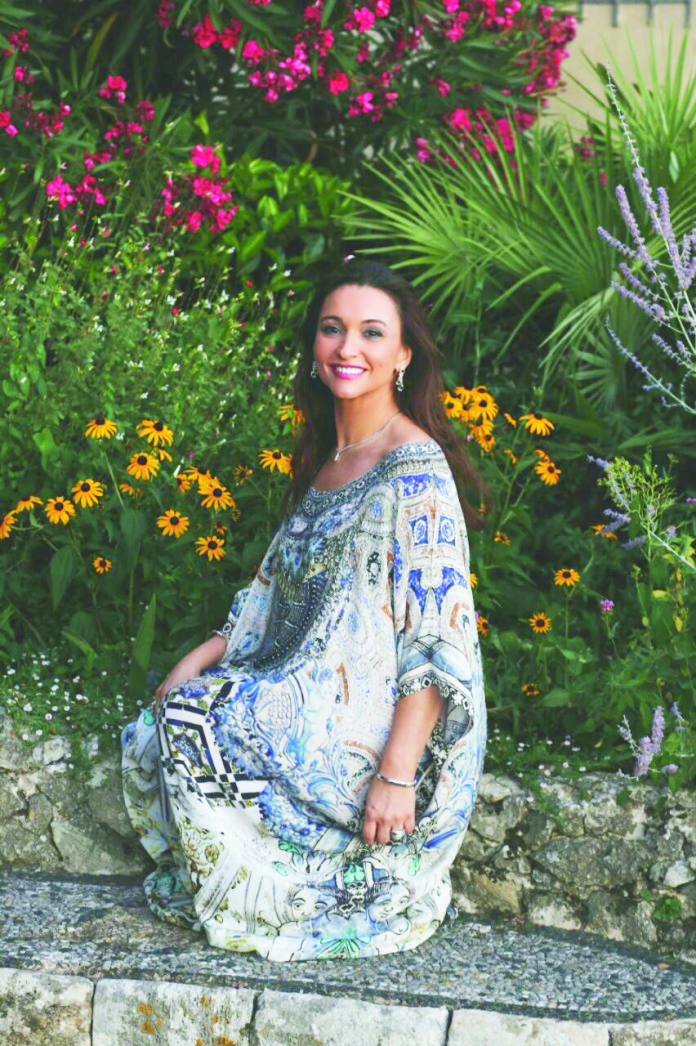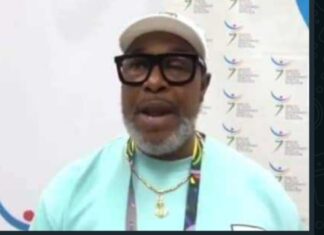The vision of the Society for the Performing Arts in Nigeria (SPAN) is to build a performing arts centre to educate, empower and present the performing artistes and their talents. You find that prominently scribbled on glass in the centre’s office at the former SCOA head office on the Lagos Island. In this interview, SPAN founder, Sarah Boulos, tells Assistant Life Editor, TERH AGBEDEH, about how God called her to the work she is doing.
You started SPAN a long time ago when dance wasn’t really a big deal in Nigeria…
The only [people] dancing then were African dancers, the Nigerian troupe… and GOND [The Dance Guild of Nigerian Dancers) was here.
Why did you keep going?
When God orders you to do something, you need to follow it.And I want to please God and make him smile. So, I am called to build a performing arts centre, called to raise people in the performing arts and teach dance, music and drama to people, so that they can have a means of income, a means of living.
The only explanation for me to have a drive like this is that I sleep at night knowing that I have fulfilled what God has asked me to do. With all the obstacles and the challenges, I know that he provides me the grace. You don’t do anything without grace. If you have the grace to do something, you will persevere, succeed in it and God will provide you the means and the tools for it.
How easy was it to set up?
It was very hard, extremely difficult, but I have a wonderful husband, a house where there was a garage. I closed the garage and we brought in the Spirit of David that helped me. You cannot do anything without the help of somebody, so the Spirit of David was already a strong gospel dance group dancing in churches everywhere.
The one that did…
Celebrity Takes 2. So, they were dancing everywhere and I met them. God sent them to me and I said, ‘let’s work together’. That is how we started with 45 square metres in my garage.
Didn’t you move to Banana Island?
Actually, after the garage, one of my patrons, Gabi Massoud, the Group CEO of the Chagoury Group, who said, “take these two offices temporarily until you can get something”. But because the land belongs to Danjuma, he didn’t want us to stay there;so, we had to leave.
This place…
It is my place, and we are not going anywhere. We are in the heart of Lagos Island.
No one has an idea that you are here next to Broad Street in Lagos; why did you choose this place?
Because this is an old SCOA building head office and my father owns SCOA. Part of the theatre project of SCOA is to help SPAN and build SPAN.
Were you born here then?
No, I was born in Burkina Faso.
Is that where the dance came from?
No, the dance didn’t come from there; it came from the fact that I studied classical ballet when I was a child.
In other words, you dance as well?
Yes, I am a teacher; I teach dance, so the only way I could have started something is that I have skill.
But you came to Nigeria because you married somebody who came here?
I came to Nigeria because my father bought SCOA and asked my husband to run it.
Was it in Burkina Faso that you met your husband?
I met my husband in Lebanon.
There is quite a large number of Lebanese who were born here. Do you relate with them?
Yes, I do, a lot.
What are you doing differently this year at the Muson Festival?
We are telling a story about how the performing arts, a leisure, a profession, actually change your life, your mentality, your way of thinking, how you become more aware of your environment and your community.
As a dance teacher, is there an age when one should stop dancing?
You can dance all your life, but professionally you have to be aware of and understand your body because at a certain age there are some things that are not easy to be done. But I know people who have danced until the age of 48 and they were fine. For other people, that is not recommended. So, it depends on how your body, your physique, evolves over the years. For music, you can play music until you are 100, but dance requires much more physical strength, using the muscles and the body. So it is a bit different.
What do you do here…
We train people to have jobs, start their own organisations; we train leaders in the performing arts. By the time they are done here, these young people are able to go out there and make a living.
How long do they have to train here before they can set out?
A minimum of two years, but most of them stay for four years.
Do you have any sponsorship?
No, I only have patrons who support our events. Indomie, 7-up and SCOA support our events. Cool FM advertises our events. We are like Robin Hood; we teach the rich and use the money to train people here. We teach for free.
So, can I just walk into the door if I am interested?
Yes, for audition.
When you see videos by some Nigerian musicians and see dancers shaking what their mama gave them…
We don’t teach that here.
Dothese videos not worry you?
It is something that we are trying to discourage here at SPAN. There is a difference between sexuality and sensuality. You can be a woman or a man and you can be sensual and show love and compassion, but the minute you cross the line and sell your body cheap, that is totally discouraging and unacceptable. So, for instance, we do not teach the dance form of twerking here because twerking is sexual. It is not sensual. So, I have something against twerking. There are people who will not be happy that Sarah Boulos does not agree with twerking, but I don’t. so, you can twerk somewhere else but not in SPAN.
Are there people that have finished here that you look at and say, ‘wow, this thing that I set out to do, I have really achieved it’?
Oh yes; we have here our Artistic Director, NnamdiNweke, who has produced over four musicals. We have Gbenga Yusuf who is the creative director of Terra Kulture and was very successful with Waka: The Musical. We have Peter, who is now in ‘Lion King’; he is married to one of our teachers and just came to visit us. He not only found his wife, but also found a job outside the country and left. We have another guy called Taiwo, who is now in America where he has his own dance studio. We have so many success stories.
If you had not come to Nigeria, would you have chosen to do dance?
I believe that when God calls you, He will call you in any country. But since I was a young child, I saw Africa and the Lord reminded me of Africa from the drums. Drums are very important to me and I believe that music from drums heals the soul. The Lord showed me that I would be in Africa; He didn’t show me another country.
You keep mentioning God; does that make you religious?
I am not religious. I follow the life of Jesus Christ. Religion is following a tradition in culture. I believe in the son of God and his name is Jesus Christ. I believe that I live a lifestyle in Christ. I am a different person because I follow Christ, not religion













